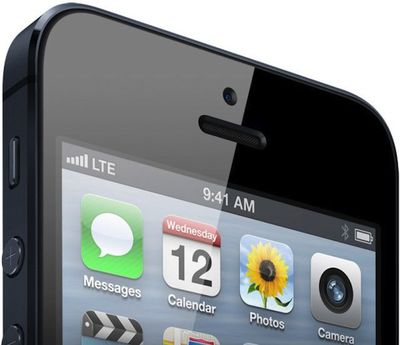Last week, we reported on Apple's plans to close its retail stores in the Eastern District of Texas in April in an effort to avoid patent infringement lawsuits in the jurisdiction, perceived by many as being "patent troll friendly."

Ahead of the closures, Apple faces yet more patent litigation in the district. A group of limited liability companies under the Optis Wireless Technology, LLC umbrella filed suit against Apple on Monday in East Texas, accusing the company of infringing on a portfolio of seven patents related to LTE standards.
Optis Wireless and the other plaintiffs named in the complaint appear to be non-practicing entities that aim to generate revenue through patent litigation. These type of companies are commonly referred to as patent trolls.
The complaint, seen by MacRumors, alleges that all LTE-enabled Apple products, including various iPhone, iPad, and Apple Watch models, infringe on the LTE patents. Optis Wireless and the other plaintiffs acquired many of the patents from Ericsson, Samsung, LG, and Panasonic — read the full complaint [PDF] for the exact patents.
The plaintiffs state that, not later than January 6, 2017, they sent Apple correspondence in an effort to license their essential patents to Apple on FRAND terms. The plaintiffs also allege meeting with Apple representatives on numerous occasions, but the parties did not reach a licensing agreement.
The plaintiffs are seeking "recovery of damages at least in the form of reasonable royalties" and have demanded a jury trial.
Last August, in the same court, a jury decided that Huawei willfully infringed many of the same LTE patents being asserted against Apple. The Chinese smartphone maker was ordered to pay $10.6 million in damages.























Top Rated Comments
There's no way that every patent holder could possibly have their own product. Smartphones especially are not something simple with a single patent. They utilize tens of thousands of patented items.
Consider if you invented a way to speed up comms. Do you really think that you must go develop and sell your own smartphone to keep your patent? Of course not!
If you're licensing a patent to companies making products, then it IS being used.
[doublepost=1551242995][/doublepost]Note that Apple itself never said it closed the stores due to EDTX lawsuits.
That was something that internet speculators came up with on their own.
Apple simply said it was consolidating its Dallas stores.
The reason this logic is suspect anyway is because avoiding EDTX would not make Apple not get sued. EDTX is not an extreme outlier, as I said above, several other jurisdictions are plaintiff-friendly for one reason or another. The cases that would have been filed in EDTX can be filed in NDTX, MDFL, DNV, or DOR, where the outcomes and procedures would be nearly the same. So Apple is not saving any money on attorneys or anything by exiting EDTX; the same cases will be filed in other jurisdictions where Apple will have to defend themselves just the same.
Think about it - this rumor would have you believe that the total cost of EDTX litigation that could not be filed anywhere else exceeds the revenue that Apple gets from those two stores. That can't possibly be true! All that litigation would be filed somewhere else, and the 1% difference in plaintiff-friendliness maybe accounts for a few hundred thousand dollars in legal fees at most! Those stores definitely made more than that.
Indeed, if I was Apple, I would be most concerned about EDVA, where the patent rocket docket means discovery begins almost immediately, the judges don't like staying cases pending IPR, and judges do not take kindly to big corporations dragging their feed on responding to discovery requests. If I was a troll trying to get Apple to pay me $500k to go away real quick, I would file there and immediately serve Apple with fulsome discovery requests.
The most logical reason is exactly what Apple said - they're consolidated the Dallas area stores into a single store in Dallas. All this stuff about avoiding EDTX doesn't make any sense once you actually look at the facts.